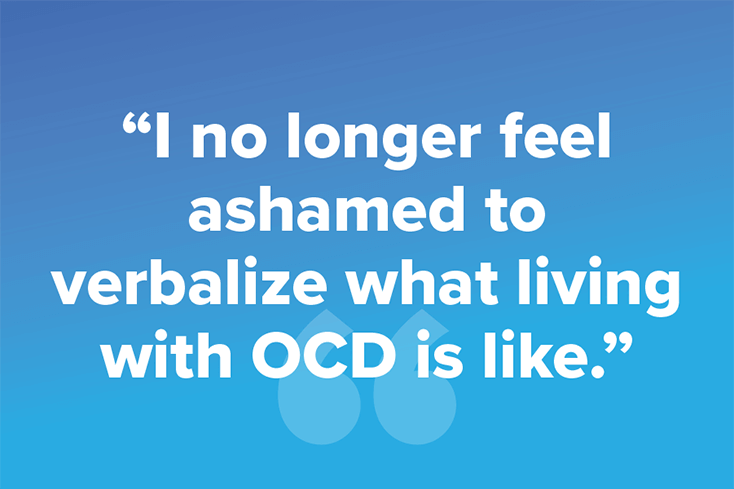May 27, 2021
By Jennifer Savage

Did you know that, on average, it takes approximately 17 years for a person to receive a diagnosis for OCD? Did you know that a person with OCD becomes 10 times more likely to take their own life? My story is proof that both of these statistics are the reality for many of us living with OCD.
I did not receive a proper diagnosis or treatment plan for this mental illness until I was 30 years old, but I spent over 20 years of my life knowing that something inside me felt off compared to others.
Growing up, I did not know how to verbalize what I was experiencing. As a child, adults often labeled me as "stubborn" or "picky." As an adolescent, adults labeled me as having "a learning disorder," "an eating disorder," "high anxiety," "depression," and even implied that I must be gay. I knew at my core that these labels were not only incorrect, but they failed to shed any light as to why certain irrational fears, images and experiences played on repeat in my mind.
None of these labels explained my repetitive and, at times, destructive, routines. None of these labels helped me understand why certain textures, sounds and colors made me extremely uncomfortable. What these labels did provide me with, however, was an incredibly fragile self-esteem as well as a skewed perception of my worth. I spent so many years questioning the "why" behind my struggles that I even questioned God and my existence. At times, the mental battle was so exhausting, and the feeling of isolation so strong, that the idea of suicide started to feel more appealing than powering through another day.
Though I did seek counseling in college, the term "OCD" was not mentioned until the very end of my college career — long after being placed on medicine for depression that only heightened my symptoms and struggles, forcing me to stop treatment. I left college and entered the world determined to keep my struggles to myself, more convinced than ever that no one understood and no one could help.
From the outside, I was a social, joyful, very put together young woman. Internally, I was fighting a daily battle that left me depleted only hours into each new day. Because of my fear that communicating what I was battling would lead to more inaccurate labels and terrible experiences on medication, I became the master of blending into my surroundings, becoming what others expected me to be and masking my symptoms. Friends and family were unaware of the intense misery I was experiencing.
In 2019, the pressure of pretending cracked me. I knew I needed help, and I was willing to seek it at the cost of breaking down the protective walls I had built around myself over the years. I sought out professional counseling with an OCD specialist, began sharing in grueling detail what my day-to-day battle was like, welcomed friends and family into my darkness and surrendered any pride that previously kept me from confessing my struggles. After six months of therapy, in 2020, I decided to try a medication specifically for OCD. I knew this medication would not be a cure, but merely one tool in the grander process of healing.
As I write this in May of 2021, I can sincerely say that I am the absolute healthiest version of myself I have ever been. I have an incredibly understanding and supportive community rallying around me on my hard and smooth days. I have experienced great success with my medication. I grow every month in my continued counseling sessions. And I no longer feel ashamed to verbalize what living with OCD is like.
Do I still have OCD? Of course. But OCD no longer controls my life. I am in control of my life now, and my mental health condition no longer defines me. Now, I thank God for this opportunity to display His goodness within my struggles. I am not alone. I never was, nor will I ever be.
We’re always accepting submissions to the NAMI Blog! We feature the latest research, stories of recovery, ways to end stigma and strategies for living well with mental illness. Most importantly: We feature your voices.
LEARN MORENAMI HelpLine is available M-F, 10 a.m. – 10 p.m. ET. Call 800-950-6264,
text “NAMI” to 62640, or email. In a crisis, call or text 988 (24/7).